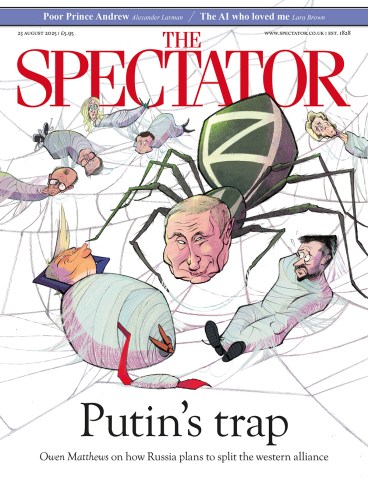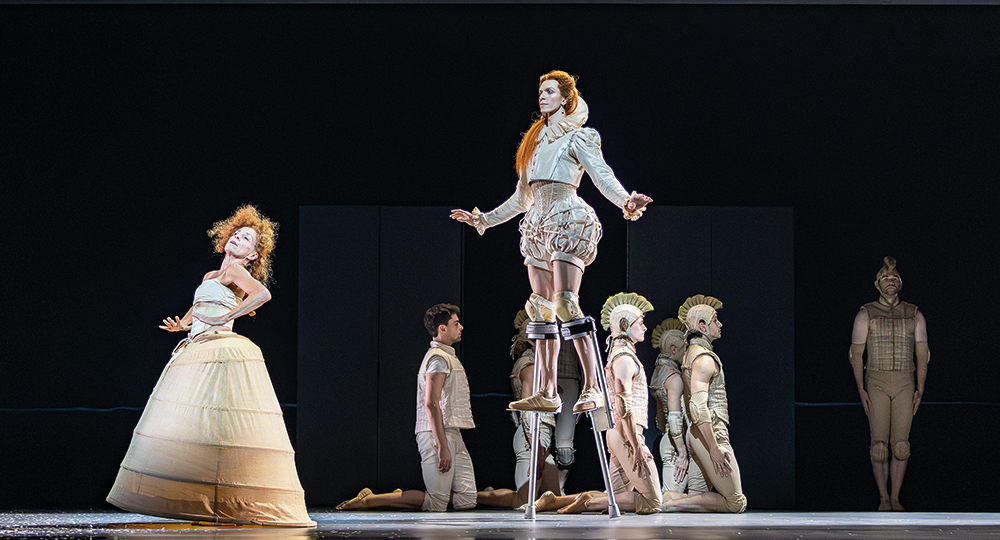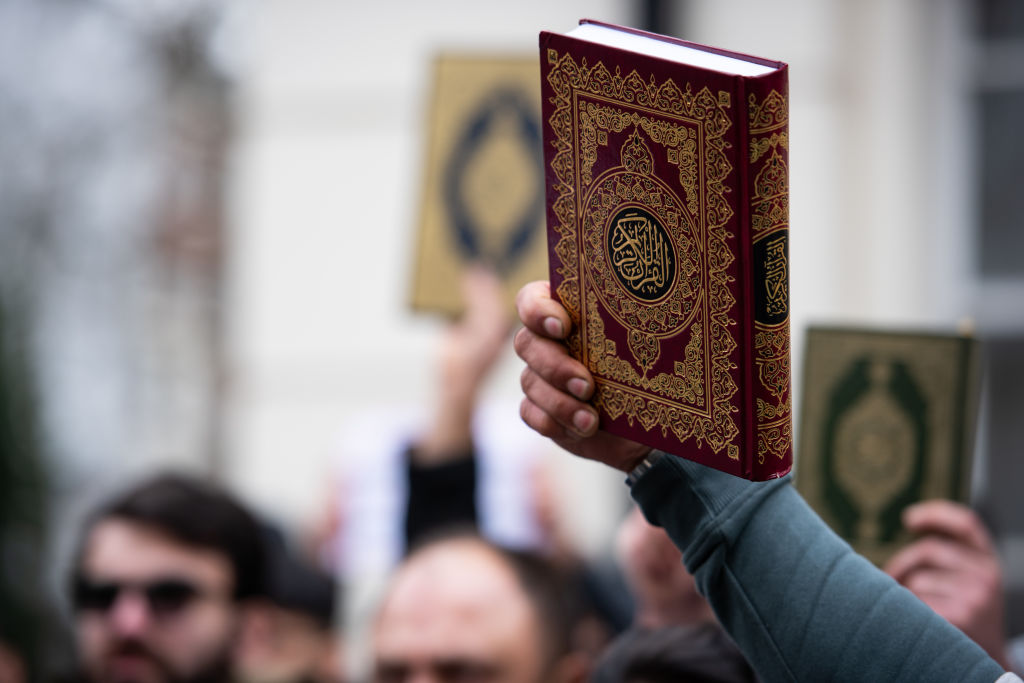
Edinburgh International Festival was established to champion the civilising power of European high culture in a spirit of postwar healing. But its lustre and mission have now been largely eclipsed by the viral spread of its anarchic bastard offspring, the Fringe. In competition with the latter’s potty-mouthed stand-ups and numberless student hopefuls, the dignified old Festival proper struggles to make much mark on the hordes who descend on the city in August, inflating prices and infuriating the residents.
Perhaps the kids will love it, but if this is the future of ballet, then count me out
Nicola Benedetti, a splendid woman and a wonderful violinist, is now in her third year directing this beleaguered institution. She hasn’t at her disposal the generous budgets financing comparable festivals in Salzburg and Aix, and she’s been charged with ‘bringing in younger audiences’ without antagonising the conservative loyalists. Both these challenges make it more difficult for her, and I don’t feel her programming has yet struck gold.
The shortfall is most evident in opera – expensive and complicated to import, and in any case not a lot that’s any good is available in August. But her immediate predecessor Fergus Linehan landed, among much else, Cecilia Bartoli in Norma and Asmik Grigorian in Barrie Kosky’s production of Eugene Onegin. Certainly nothing of that quality was on offer this (or last) year.
The one fully staged opera was Gluck’s Orpheus and Eurydice, sung in its Italian version and presented in that grim barn of a theatre, the Edinburgh Playhouse. It received three performances, each lasting 80 minutes. The cast consisted of two soloists and a chorus largely made up of students, complemented by a troupe of Australian acrobats who somersaulted over tables, dangled from ropes and formed towers and pyramids of themselves. I was not convinced that their presence was anything but a distraction, but this was opera à la mode – the cast barefoot in black suits, framed by a white box, its walls latterly smeared with blood-red graffiti. Lazy cliché, in other words, albeit crisply directed and designed by Yaron Lifschitz.
The musical execution, fortunately, was a delight. As Orpheus, Iestyn Davies seemed undaunted by the vast proportions of the Playhouse and managed to project his beautiful countertenor with stylish confidence and rich variety of expression. Samantha Clarke doubled impressively as Eurydice and Amor, the chorus was enthusiastic and Laurence Cummings conducted the Scottish Chamber Orchestra with muscular vigour. A full house responded with wild applause, but the acrobats stole the show from the singers, which didn’t seem right.
If staged opera is at a premium, the Festival has a long and rich tradition of superb concert performances in the dear old Usher Hall: Lorraine Hunt Lieberson in Les Troyens, the young Jonas Kaufmann in Meistersinger, Maria Stuarda conducted by Charles Mackerras, and the recent Ring cycle, are among many such in my personal treasury.
This year brought Puccini’s larmoyant one-act masterpiece Suor Angelica, an adorable work but one not really suited to concert presentation. Set in a convent and climaxing in a vision of the blessed Virgin Mary, it loses something of its emotional impact when the drama is being conveyed by an assortment of ladies in décolleté frocks and extravagant coiffures lined up behind music stands. But Antonio Pappano was on hand to conduct the London Symphony Orchestra in a reading of delicate sensitivity and the glamorous Carolina Lopez Moreno sang gorgeously and piteously as the eponymous nun with a guilty secret, so there was much to jerk the tear ducts. Among the smaller roles, the veteran Elena Zilio gave an exemplary display of italianità, and Sarah Dufresne sang prettily as perky Suor Genovieffa. (You can hear a repeat performance from the Proms, with the same cast, on BBC Sounds.)
Dance has recently been the weakest feature of the Festival menu (except when Brian MacMaster bagged Mark Morris’s company in the 1990s) and I feel that Scottish Ballet’s Mary, Queen of Scots smacks of desperation. Heavy on plot if not on historical fact (Bothwell is entirely redacted), it opens with the dying Elizabeth (Charlotta Ofverholm), presented as a crazy old crone dancing through a snowstorm in a bra and big knickers as she revisits a haunted past. In yet another white box (come on, Soutra Gilmour, you can design better than this), a mash-up of the familiar story unrolls to the accompaniment of a crude electronic score I can only describe as my idea of aural hell.
When all else fails, there is always the balm of the daily 11 a.m. chamber concert at the Queen’s Hall
Mary, with a garçon haircut, makes oddly little impression in Roseanna Leney’s pallid performance, but then she hasn’t been given anything very characterful to dance – Sophie Laplane’s choreography is brutally ugly and sexualised, all kicks and thrusts, much more convincing on the men than the women. Evan Loudon is rather good as devious Darnley, as is Javier Andreu as his boyfriend Rizzio – even if I kept muddling him up with Thomas Edwards’s Walsingham. And who on earth was this bizarre gender-fluid popinjay, dressed to evoke a Nicholas Hilliard miniature, walking on tippity toes with a stuffed dog on a leash? On consulting the programme, he-she turns out to be the young Elizabeth, danced with aplomb by Harvey Littlefield.
It is all incoherently pretentious and over-emphatic, crucially lacking in any sense of what dance can and cannot communicate. Perhaps the kids will love it, but if this is the future of ballet, then count me out.
Still when all else in the Festival fails, there is always the balm of the daily 11 a.m. chamber concert at the Queen’s Hall to bring restorative joy. I heard the Old Etonian and BBC Young Musician of the Year Ryan Wang playing Chopin: unadulterated great music, delivered with wonderful elegance and panache, provided two hours of serious bliss.







Comments